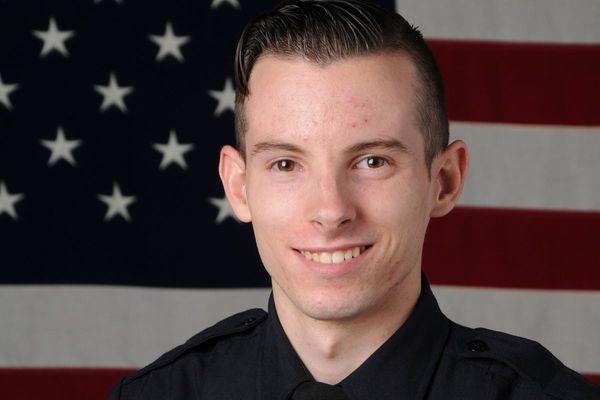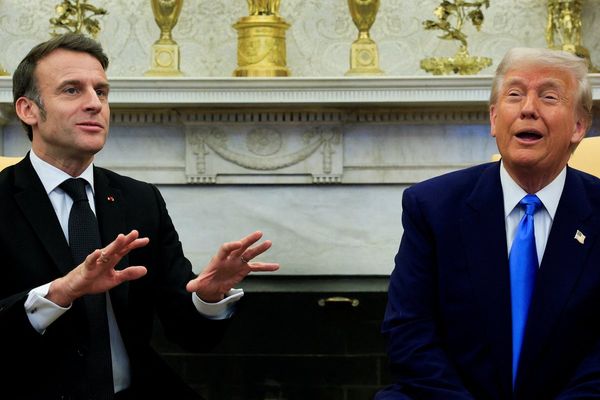As France evacuates its citizens from Ukraine, FRANCE 24 spoke to some French nationals who are heading in the opposition direction. A former soldier and an intensive care doctor reveal why they plan to enter the war zone while a nurse and a logistics expert explain how they are organising to send medical supplies to Ukraine later this week.
“I really don’t know what awaits me. I’ve never experienced a real war.” Aurélien (not his real name) is a former soldier in the French army and a hospital porter who feels he could be useful to the Ukrainian resistance. He plans to leave his home in northern France, with at least one other French volunteer, and drive to Ukraine via Poland this week.
“I want to go there for obvious reasons. For freedom and peace. What’s happening now in 2022 goes against all progress. Kyiv must hold out, and they need us. We hope to arrive in time to support the resistance.”
He learned how to use a firearm when he was a soldier but “it’s my years of working in a hospital emergency services department that will be helpful”, he says. As a hospital porter, Aurélien honed his first aid skills and was responsible for safely transporting patients and medical equipment within the hospital. “Still, I think we have to be ready for anything.”
The 30-year-old will be leaving France without any military equipment and does not have any contacts on the ground in Ukraine.
“First, we want to meet with the Ukrainian resistance, and I think the rest will follow.”
Ukraine’s ‘International Legion’
Ukrainian President Volodymyr Zelensky on Sunday announced the creation of an "International Legion" for foreign military volunteers. The Ukrainian government is in the process of creating a similar structure for medical volunteers. “Why not?” responds Aurélien, when asked if he plans to join. “I’ve emailed the Ukrainian embassy in Paris to let them know I’d like to volunteer.”
But Aurélien could find himself turned away at the border since he does not have a passport. He hopes his French ID card will suffice.
Dr Arsène Sabanieev, a Franco-Ukrainian doctor who works at an intensive care unit in Lille, has set up a Facebook group for would-be medical volunteers. He says people in Aurélien’s position should present themselves physically, with their identification cards and proof of military training, at the Ukrainian embassy in Paris to receive special authorisation to cross the border. “It’s impossible to get through to the embassy, they’re overwhelmed. The only option is to go in person,” he says.
‘They’ll be on their own’
Dr Sabanieev’s Facebook group, Volontaires français Soignants en Ukraine (French Medical Volunteers in Ukraine), is growing fast.
“I’ve told those who want to go that they will not have any insurance, that they’ll be going in a personal capacity only, the [French] embassy won’t be behind them. If someone gets shot, they’ll be on their own. It’s very risky.”
Dr Sabanieev was born in Kyiv but moved to France with his mother when he was 10 years old. He plans to travel to Ukraine this weekend and is already in contact with the ministry of defence.
“I’ve been a Ukrainian patriot since I was 15. Becoming a doctor was my way of helping my country. But I could never have known that we would find ourselves in this situation.”
A friend has lent him a van, which he’s in the process of filling with the medical equipment and supplies he will need once he arrives.
He’s apprehensive, and says his French wife doesn’t want him to leave. “But she understands,” he says.
“It’s battlefield medicine, and I’m not trained for that. But I’ve done some emergency services work, I know first aid. I can use a firearm, but I’m going there as a doctor. I help by saving lives.”
‘You can’t go on your own, with your eyes closed’
Valerie, an intensive-care nurse with experience of humanitarian work overseas, changed her mind about travelling to Ukraine when she realised she would have to go without any insurance or support from official French institutions or government agencies.
“[French Foreign Minister] Jean-Yves Le Drian is trying to get all the French people inside Ukraine out. I’ve spoken to the humanitarian associations I’ve worked with in the past – not a single one is going to Ukraine. There’s a reason for that: it’s a war zone and it’s extremely dangerous. Tragedies will be added to the Ukrainian tragedies already taking place.”
Still keen to help, Valerie is instead collecting donations of medicine from the pharmacy of the hospital where she works. She plans to liaise with an association experienced in transporting medical supplies to Ukraine.
“I would have liked to go on a convoy transporting medicine. I think I could be useful. But having at least some structure is crucial. You can’t go on your own, with your eyes closed.”
‘I’m not a soldier … but in my heart, I want to go’
Benoît set up an association, French & Ukrainians Supporting Army, during the violence in the Donbas region in 2014. In recent weeks, he has reactivated the group. He collects donations from individuals in Europe and the United States to buy medical supplies online that he sends to soldiers in Ukraine.
“We have a lorry leaving on Thursday or Friday this week, with medical supplies inside (compression bandages, Celox, tourniquets…). The driver is Ukrainian. Next week a lorry will leave with protective equipment for soldiers. I do not traffic arms, there will be no lethal weapons.”

Benoît used to run a company importing French wine, and champagne in particular, to Ukraine. He was in the Donbas region with his Ukrainian wife when the conflict began in 2014 but has since relocated back home to France.
“I have [soldier] friends in Mariupol. The city is encircled by the Russians. They say to me, ‘Look after my children’," if they don't come back.
In recent days a friend of his in the Ukrainian army was killed during the Russian bombings in Kharkiv.
“I’m more useful here in France,” he says. “I’m not a soldier, my friends over there know how to fight. I know how to do logistics. But in my heart, I want to go."
"It’s eating me up inside," Benoît says. "But I have a wife, I’m a father. I have responsibilities.”








